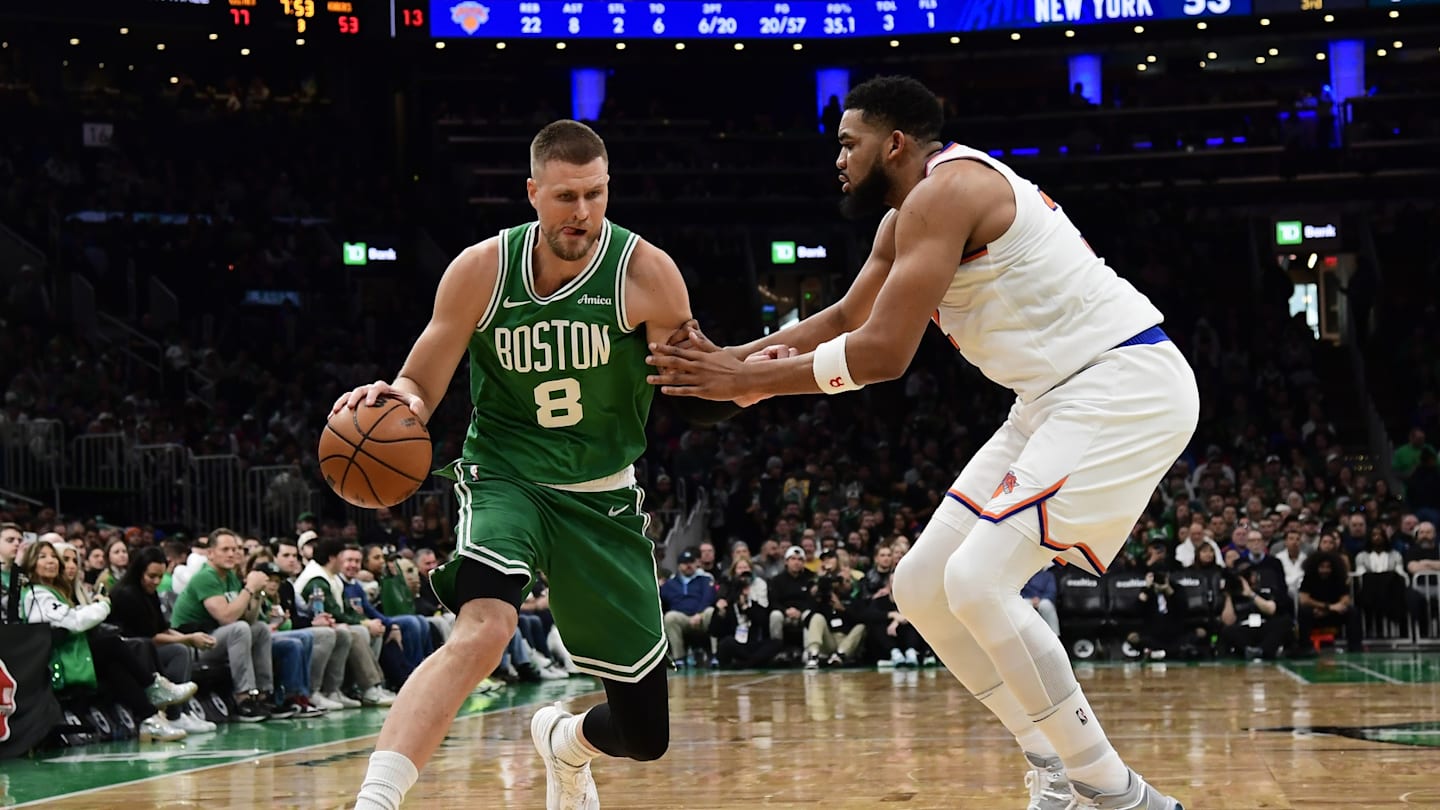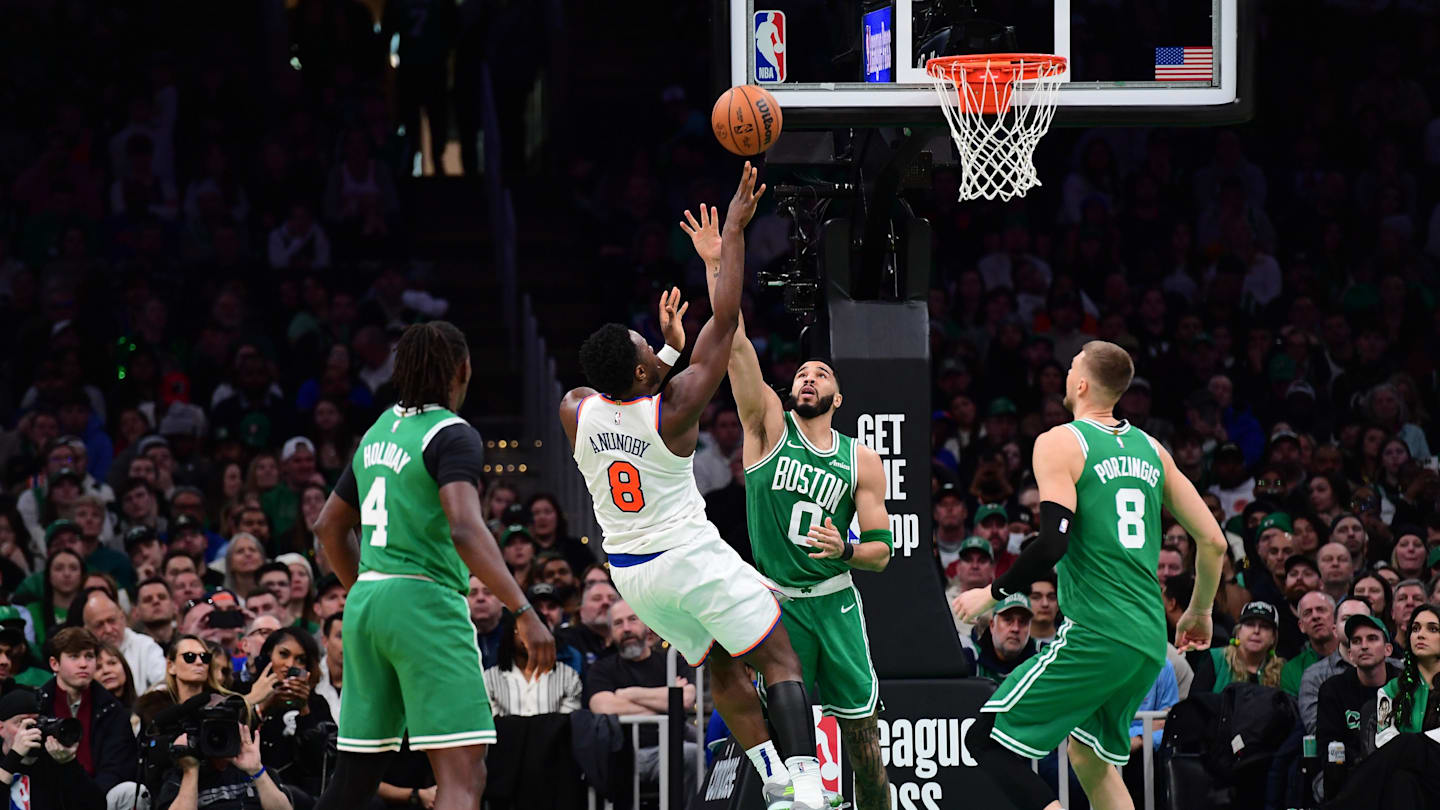NBA vs. the Box Office: Here’s Why That $76 Billion Deal Looks Like a Bargain

It’s the fourth quarter, game on the line, shot clock running out: Who are you looking at to make that game-winning bucket? Kevin Durant or… Willy Wonka?
The NBA finalized new TV deals with Disney/ESPN, Amazon, and NBCUniversal and Peacock for a combined $76 billion over the next 11 years, according to a report first in The Athletic. It’s one of the richest sports rights agreements this side of the NFL, nearly tripling the NBA’s last TV deal.
And while that number sounds crazy, it may be the safer move.
When even franchise titles or starry originals don’t guarantee butts in seats, sports are appealing because they don’t carry the same risk and uncertainty as movies. Sports ratings have only grown, and Hollywood needs a slam dunk.
On-demand and streaming stripped broadcast and cable of nearly all value, leaving sports with a stranglehold on the entertainment industry. The cost of live sports’ media rights skyrockets as linear viewership for every other kind of programming dwindles.
Rough math: $76 billion divided by 11 years comes out to $6.9 billion per year. Is the annual investment in live NBA games worth nearly as much as the Americans who visit theaters each year?
An asterisk: Domestic box office is currently on pace to reach $7.6 billion-$8.1 billion in 2024. (Before “Inside Out 2” blew up, the domestic haul was looking to be exactly $6.9 billion.) Last year’s domestic box office surpassed $9 billion; should it fall below $8 billion, this year could be an outlier.

Still, the comparison holds. “If you add up all the games and all the viewers for all the games, my guess is that’s a multiple of the number of movie tickets being sold in a year,” Daniel Kirschner, CEO of tech company Greenfly that works directly with the NBA on social media promotion. “It does just drive home how incredibly valuable and how large these numbers are.”
If you’ve been around the video game industry, you know it has similar shorthand to say that the global gaming space annually brings in more revenue than the movies and music industry combined. Sports surely could make the same boast, however you want to cook the numbers.
NBC will pay around $2.5 billion a year, with half of its 100 games each year streaming exclusively on Peacock. Amazon will pay $1.8 billion a year for regular-season games, some playoffs, and the NBA’s new in-season tournament. And Disney will pay $2.6 billion to keep the NBA Finals on ABC.
Although Disney must settle for fewer games on ESPN than it has now, it gained the right to stream games on its ESPN streaming service set to launch in 2025. In the meantime, ESPN’s and ABC’s games are expected to stream on the joint venture sports streamer Venu it shares with Warner Bros. Discovery and Fox (if that ever launches). TV rights for the increasingly popular WNBA (thanks, Caitlin Clark!) figure into all of this, too.
The NBA TV deals are for domestic viewing, though there’s been some rumbling that Amazon also wants international rights. Warner Bros. Discovery last year claimed rights in the UK away from NBCUniversal’s Sky, and those rights aren’t available for some time. More than any other American sport, the NBA has by far the most international appeal. According to data from Ampere the NBA also skews younger than other sports, making for some truly valuable eyeballs.
Viewership for this year’s NBA Finals was the lowest it’s been in three years, averaging 11.3 million people over the five-game series. Still, Disney sold out ad space in the early goings of the finals; Sportico reported that advertisers spent just over $200 million during the first round of the playoffs alone.
As Kirschner explains, Hollywood cares about live sports because it’s a “reliable source of quality, premium content.” The rights holders will have that comfort for next 11 years.
“You might have a hit show, and maybe it runs for a season or two, and then the popularity drops off or other things happen,” Kirschner said. “To know that you have 10-11 years of quality content at scale that you can consistently rely upon and that can drive everything from subscriptions to carriage fees to all those pieces? For a significant percentage of the population, that’s a real bedrock.”
Streamers constantly fret over churn, cancelling subscriptions once they’ve finished binging their favorite show and only coming back once it returns. Knowing a big chunk of your team’s games could be played on Peacock has a way of keeping people around.

The numbers bear this out. When Peacock had exclusive access to the Kansas City Chiefs playoff game this winter, it was the biggest sign-up event in streaming history as 2.8 million people got accounts in 72 hours; 71 percent of those newbies stuck around. Netflix would like to see if lightning can strike twice this Christmas.
Kirschner said deals like this one look like an overpay now, but by the end they seem like a bargain by the end of it. Even so, there’s a strong likelihood that streamers who spent billions on the NBA will spend fewer billions on original content or acquisitions. Or, price hikes.
You also don’t want to be the company that doesn’t have major sports rights. Warner Bros. Discovery was left out of the finalized NBA deals, but the company has until July 21 to match the existing offers (though that’s highly unlikely). Without the NBA, it could be in a tough spot as it looks to launch Venu, draw subscribers to Max’s Bleacher Report tier for sports streaming, and command the same premium carriage fees for TNT. (Charles Barkley is nonplussed.)
Related
NBA: Mark Cuban says he would have asked for more…
Feb 13, 2025; Dallas, Texas, USA; Mark Cuban laughs during the second half of the game between the Dallas Mavericks and Miami Heat at American Airlines
NBA Scout Reveals Why Celtics Can Easily Beats Knicks in…
The Boston Celtics are one of the teams who are expected to be a contender at the end of the season. They are the defending NBA champions, so they feel like the
Nikola Jokić gives peak Nikola Jokić interview with Scott Van…
Nikola Jokić is still rewriting the record books — and treating it like just another day at the office. In a 149-141 overtime win over the Phoenix Suns
Knicks’ Struggles vs. NBA’s Elite Explained
The New York Knicks are one of the best teams in the NBA, but as of late, they have been defined more by their struggles than their triumphs.The Knicks are 0-7












